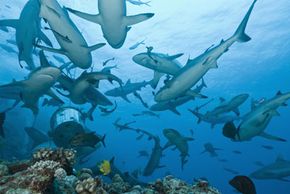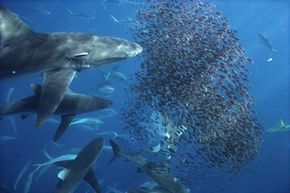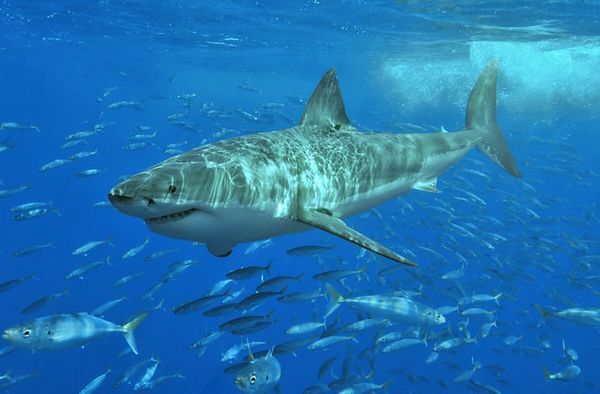It starts slowly, with one person peeking into the break room and seeing the box of doughnuts. What good fortune to find this box of doughnuts with hours to go until lunch! Maybe she'll tell the co-worker over the cubicle wall, and word will slowly spread. Other people in the office may start to notice that more people than usual are heading for the break room. Maybe they see the doughnuts gripped in their co-workers' hands. Perhaps they can just smell that heavenly combination of glaze and dough. But soon, it's an all-out sugar rush as office drones battle for that last doughnut. No time to be nice. We're talking about doughnuts here. It's a feeding frenzy.
Animals from wolves to birds to turtles have been known to go wild for some food item and compete furiously for it. The term "feeding frenzy" has been used to describe everything from brides-to-be at a designer wedding dress sale to journalists hungry for a scandalous ratings-buster of a story. But the idea of a feeding frenzy originated with sharks in a 1958 book titled "Shark Attack" by V.M. Coppleson. It's that usage that really captures the crazed and frightening aspects of a feeding frenzy [source: Safire].
Advertisement
A shark feeding frenzy occurs when a number of sharks fight for the same prey. Sharks are usually solitary diners, and a feeding frenzy indicates why that might be. To an observer, it looks like the sharks lose their mind biting at anything that's in their way in an uncontrollable rage. They thrash around, their snouts elevating and their backs arching, all signs that indicate an impending attack. Some accounts tell of sharks eating each other and of sharks continuing to feed even after they've been disemboweled by other sharks [sources: Encyclopedia Britannica, Martin].
But what causes these feeding frenzies? Some studies indicate that sharks will always be motivated to eat, no matter how full they are [source: Parker]. Does this mean that a feeding frenzy could happen at any moment? What causes them to get so crazed? And why can't they just share? We'll take a closer look at the causes of feeding frenzies on the next page.
Advertisement



